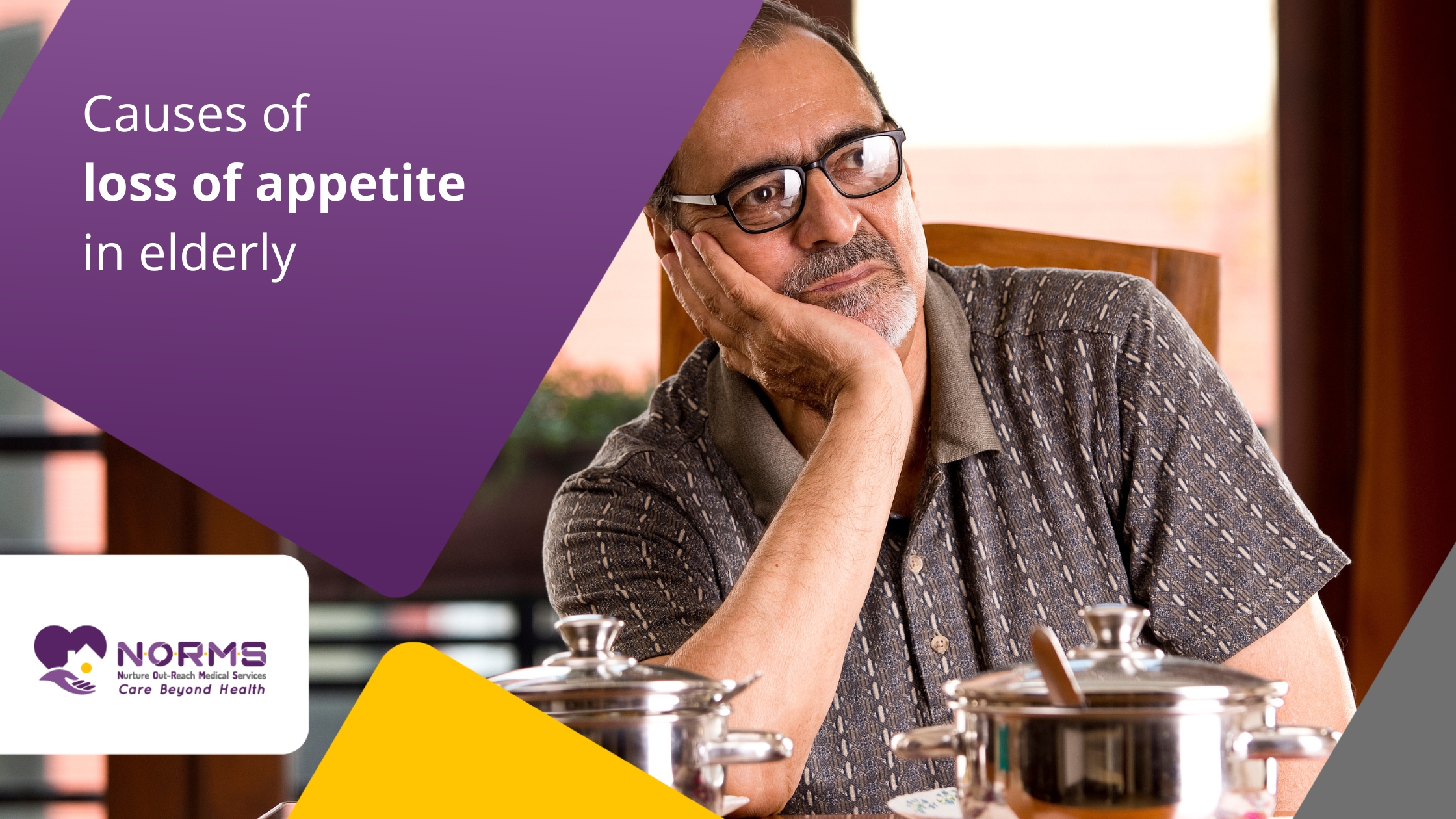
Your elderly loved ones, be it your parents or grandparents complain about loss of appetite and you wonder why? Is it the taste of the food or any other digestive issues? What is appetite loss, what causes it, and how to manage the symptoms of loss of appetite?
Appetite loss in the elderly is a serious cause of concern. Medically known as “anorexia of aging” is an ongoing period of low appetite or loss of appetite, resulting in the lack of desire to eat (not feeling hungry) or afraid of eating (despite feeling hungry). However, prolonged loss of appetite can cause undernutrition which leads to other bodily complications such as weight loss, immunity deficiency, longer recovery time from illnesses, physical frailty causing joint pains, and severe health issues that call for hospitalization. The risks and complications are higher when your elderly loved ones have other existing health conditions.
There are numerous causes for loss of appetite and some possible reasons for appetite loss in elderly may be due to age-related issues, depression due to loneliness, existing health issues, and some medicines used for other medical conditions.
If you notice these symptoms in your elderly parents or loved ones, you should seek medical attention immediately.
Appetite loss in elderly, if not addressed in time, can lead to nutritional deficiencies, or malnutrition in severe cases, which will lead to serious health conditions.
You should use some different methods to stimulate appetite in your loved ones. This should involve spending more time with your elderly parents, grandparents, or loved ones, to make them happy and come out of depression. You can plan to have lunch or dinner together with some special nutritious dishes to their liking, but ensure that the food is rich in vitamins and minerals. Set up a daily routine for your elderly loved ones to have breakfast, lunch, dinner and snacks at the same time every day. To address depression resulting in loss of appetite in elderly, ensure that they are engaged in some physical and social activities to keep fit and healthy both physically and emotionally.
If the loss of appetite is due to underlying health conditions and usage of medicines, consult the healthcare professional who is treating your elderly parents or grandparents and seek advice to alter medications or treatment.
You may also seek advice from the healthcare professional who is treating your elderly, for medications for the treatment of loss of appetite, to address specific causes and symptoms of loss of appetite. Sometimes, the medications can help bring back the appetite levels to normal.
Appetite loss in the elderly is a serious cause of concern if it is associated with any other health conditions such as sudden weight loss, physical frailty, fatigue, immunity deficiency, longer recovery time from illnesses, thyroid disorders, hepatitis, throat infections, cancers, etc.
There are a quite number of causes for loss of appetite in elderly, and some of the most common causes are age-related physiological and lifestyle changes, reduced ability of sense organs for – smell, taste and vision, lower metabolism, less physical activity, depression due to loneliness, hormonal changes which alter the hunger signals to the brain, health conditions such as – liver disease, kidney disease, thyroid disorders, cancers and medicines associated with these medical conditions.